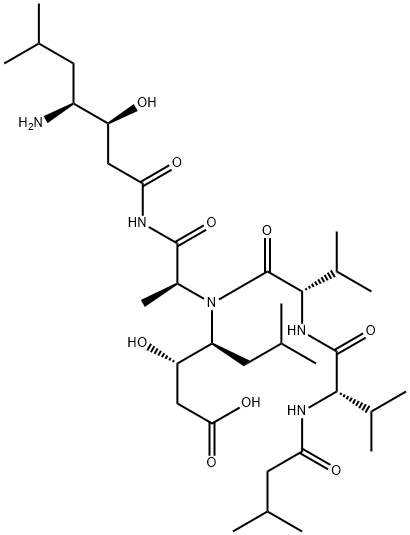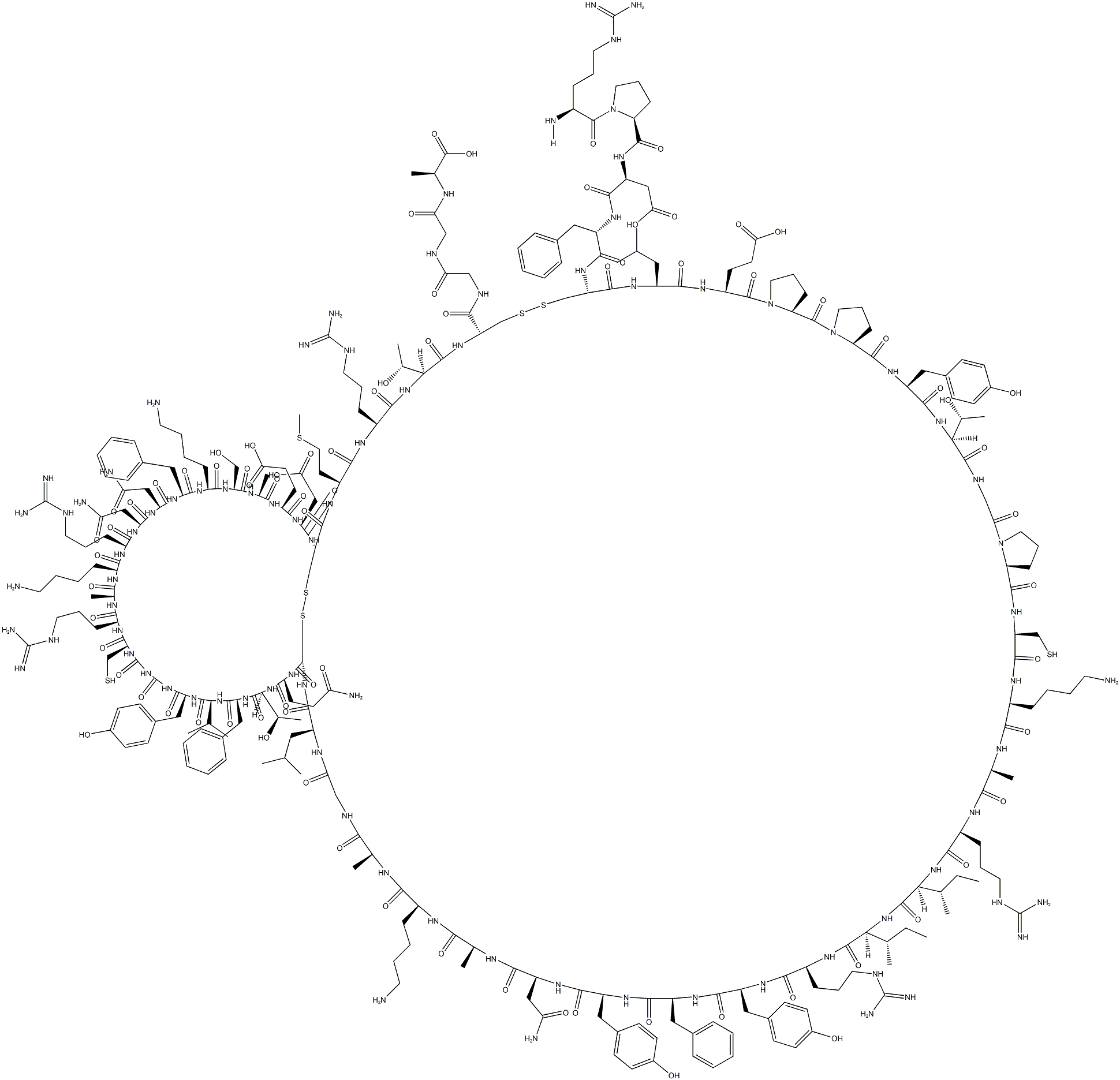PepstatinATFA , 98%
Synonym(s):
Pepstatin A;Cathepsin D;Cathepsin D heavy chain;Cathepsin D light chain;CPSD
CAS NO.:
Empirical Formula: C34H63N5O9
Molecular Weight: 685.89
MDL number: MFCD00060740
EINECS: 247-600-0
| Pack Size | Price | Stock | Quantity |
| 10mg | RMB291.20 | In Stock |
|
| 50mg | RMB904.80 | In Stock |
|
| 100mg | RMB1568.80 | In Stock |
|
| others | Enquire |
PRODUCT Properties
| Melting point: | 233 °C (dec.)(lit.) |
| alpha | D27 -90.3° (c = 0.288 in methanol) |
| Boiling point: | 695.91°C (rough estimate) |
| Density | 1.1340 (rough estimate) |
| refractive index | 1.7500 (estimate) |
| storage temp. | 2-8°C |
| solubility | 10% acetic acid in methanol: 1 mg/mL |
| pka | 4.17±0.10(Predicted) |
| form | White solid |
| color | Colorless needles |
| biological source | synthetic |
| optical activity | Optical rotation: -90.0 ± 5° (c = 0.5, MeOH, 20°C). |
| Water Solubility | It is soluble in 10% (v/v) acetic acid in methanol (9:1 methanol:acetic acid) (1 mg/ml), ethanol (1-2 mg/ml with heat up to 60°C), DMSO (5 mg/ml), methanol (1 mg/ml), and acetic acid. Insoluble in benzene, chloroform, water, 1 M NaOH, and ether. |
| Specific Activity | ≥100,000U/mg |
| BRN | 2201362 |
| Stability: | Stable. Incompatible with strong bases, strong acids. |
| InChIKey | JKGWASGTXVCDML-LXTPJMTPSA-N |
| CAS DataBase Reference | 26305-03-3(CAS DataBase Reference) |
Description and Uses
Pepstatin A is a bacterial-
Antiviral;Aspartic proteases irreversible inhibitor
Safety
| Symbol(GHS) |  GHS07 |
| Signal word | Warning |
| Hazard statements | H315-H319-H335 |
| Precautionary statements | P261-P305+P351+P338 |
| Safety Statements | 22-24/25 |
| WGK Germany | 2 |
| RTECS | SC6155000 |
| F | 10 |
| HS Code | 29241990 |
| Toxicity | LD50 in mice, rats, rabbits, dogs (mg/kg): 1090, 875, 820, 450 i.p.; all >2000 orally (Umezawa, 1970) |


